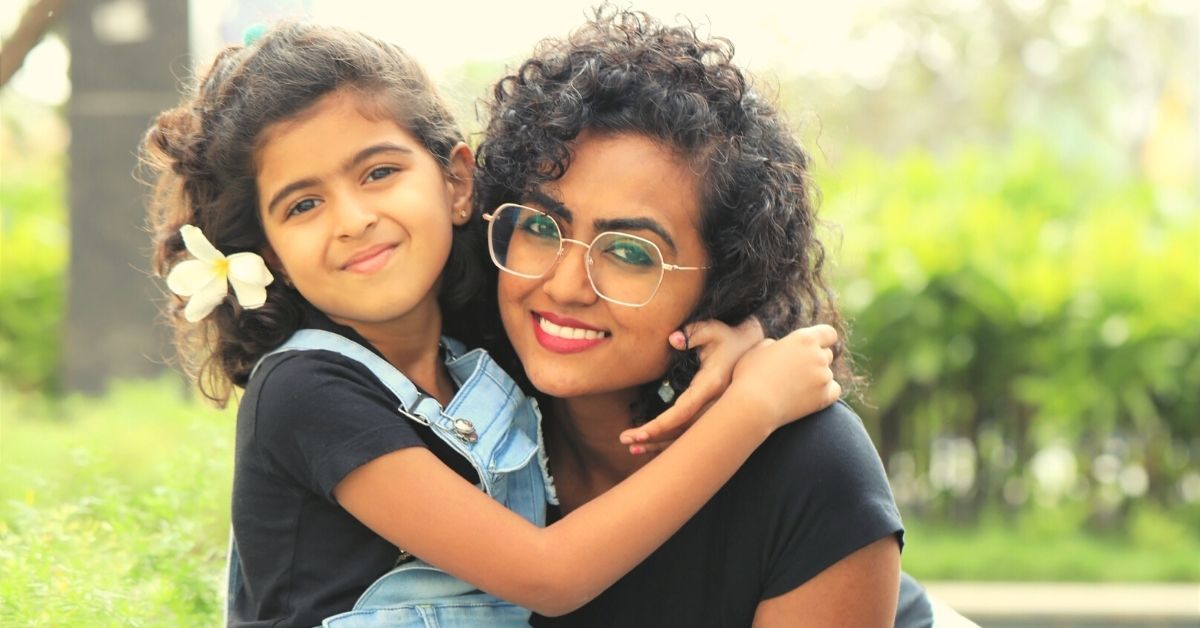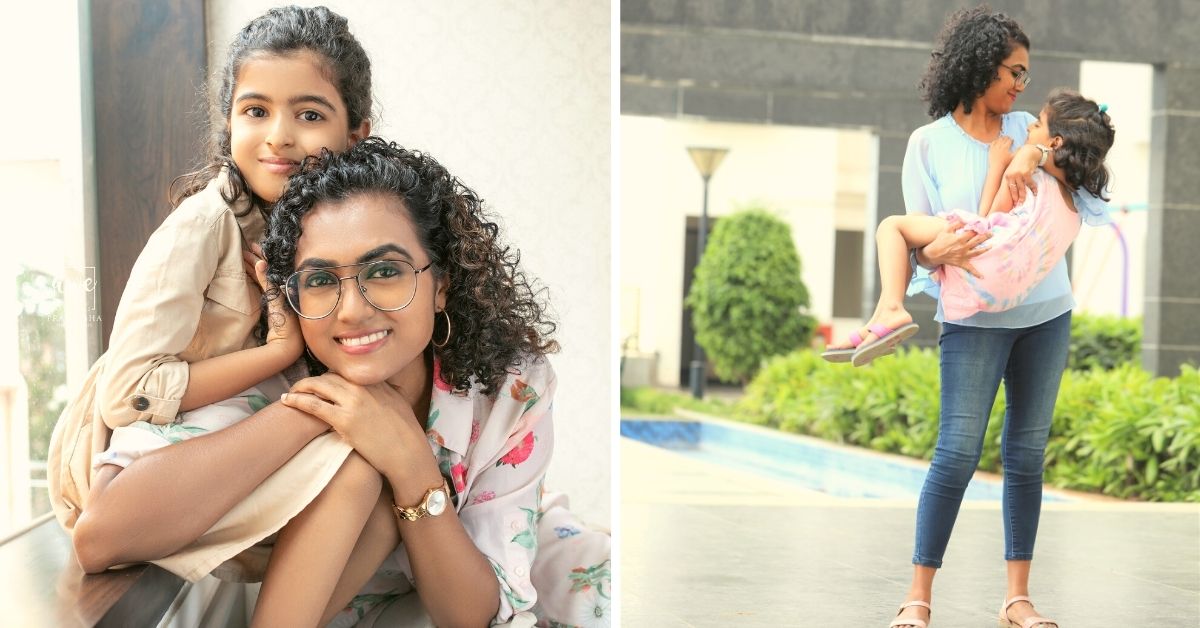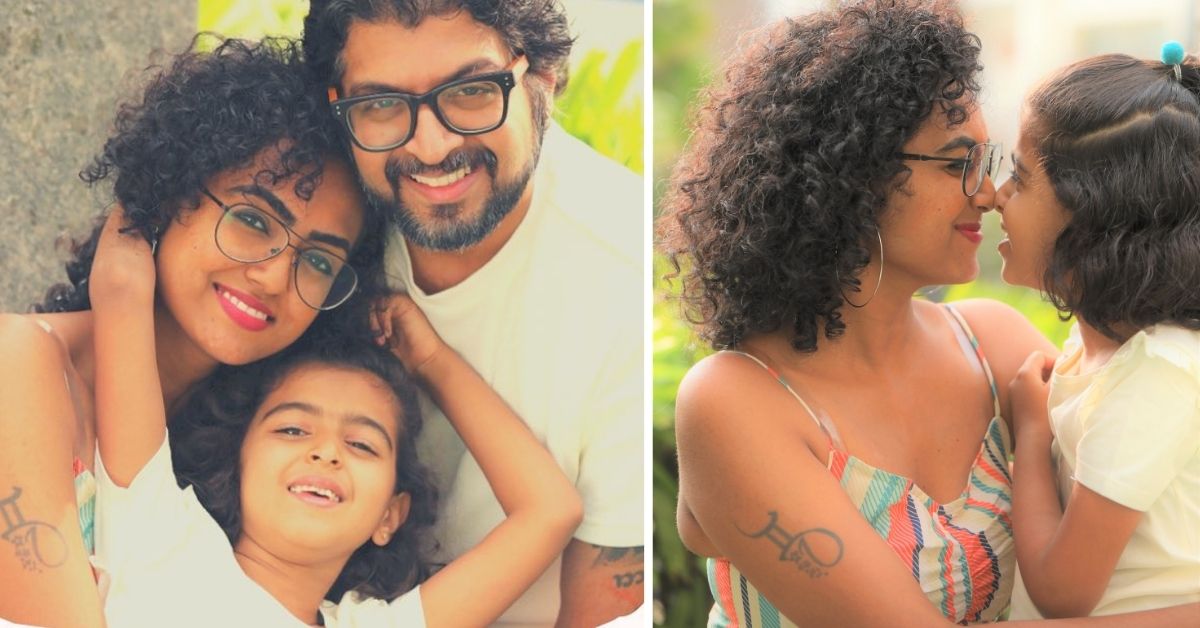Better Parenting Comes From Better Sex-Ed: Coimbatore Sexpert Shares
Swati Jagdish, is Coimbatore's lactation counsellor-turned-sex educator, who addresses a myriad of unspoken topics including breastfeeding, menstruation, consent, sexual abuse at home on her page — Maya's Amma.

Like all ’90s kids in India, I too grew up watching the popular dance show called ‘Boogie Woogie’ and aspired to be on that stage. I would love to dance and could do it for several hours at a stretch. The world around me would fade away the very moment someone would play any music. My parents loved watching me dance, and like any Indian family, they would proudly boast about it to their friends, who would then want to see a demonstration.
As a 4-year-old, I loved all the attention and would move to the tunes almost at every gathering, whenever someone requested a performance. But, as I grew older it got harder to make the world around me disappear every time I danced. The peering eyes appreciating my performance began to feel like they were piercing me. The 7-year-old me did not like to dance on cue, or appreciate nosy auntys pinching my cheeks red. I started refusing politely and prefered to be on my own. The refusals, however, did not always sit well with the crowd. As a response, most would resort to repeated insistence, some would complain ‘why had I become so shy and reserved’, and few even called me rude. “You used to be such a cheerful kid”, was the most common complaint.
So, for the longest time, I was under the impression that I lacked something. That I was too reserved to be fun and incapable of embracing the art of dance that I loved so much. I believed what they all said and let the crazy fade.
But things might have been different if someone would’ve told my younger self — “It’s fine. It’s your body. Do whatever you please or feel comfortable.”
Although this might seem like a silly rant, the mighty debate around consent, self-love and all things that ensure your agency, start from this point, suggests sex-educator and influencer Swati Jagdish.
The idea of consent begins to build in a person when they are as young as 6 months old and begin consuming solid foods. It can start with a simple refusal to eat something, or be cuddled and tickled to setting boundaries and asserting one’s choice. The reaction to the word ‘no’ from a child is usually met with criticism or simply ignored. By breaking their boundaries, parents and relatives without even realising, begin to corrode the efficacy of consent, says Swati, whose Instagram page, @mayas_amma has more than 300,000 followers today.
She explains, “Sometime ago, I happened to bump into a person who follows me on Instagram. I was with my daughter Maya at the time, and after a casual conversation about my work, the person shifted her focus to Maya and began to address her as ‘Mayu’. At that moment, my 7-year-old suddenly stopped her and said that only her family can address her by this nickname. At first, I was quite taken aback and embarrassed. I even thought she was being rude. But then I realised that she said nothing wrong. She was simply setting up boundaries and asserting her choice. That was the first time I saw her exercise her right to consent and that made me very proud.”
‘Breasts are, just Breasts’

Swati is a trained lactation counsellor and sex educator motivated towards normalising conversations around several tabooed issues like, sexuality, body, mental health, relationships, etc. Through Instagram posts, stories as well as workshops on anatomy, sex education and lactation, she is helping young people and parents create a wholesome and progressive generation.
However, a few years ago, the 34-year-old had never imagined she could amass this level of reach and impact. It all started in 2014 when Maya was born. With the good news of motherhood, Swati also suffered the loss of both her parents. A young mother looking for support and guidance, she reached out to several parenting groups on social media and was finally able to connect with a peer-to-peer support network of mothers in Coimbatore where they discussed a myriad of relevant topics from diapers, sleep schedules, baby carriers to breastfeeding and more.
“During the sessions, I would often breastfeed Maya and talk about the unnecessary taboo around the act. Slowly people began to ask more questions and the dialogues led me to realise the amount of misconceptions existing about the female anatomy, overt sexualisation of breasts and many other issues. That was when I decided to do a lactation counselling course online and began to work in a hospital,” says Swati, who became Coimbatore’s first lactation counsellor.
But fighting social taboos and over-sexualisation of breasts by speaking to only mothers was not the final solution, only a small part of it. Over time she realised that breastfeeding awareness sessions or even breast cancer awareness conducted in colleges is mostly limited to a female audience. This is a parenting issue that requires open conversation by all, irrespective of their genders.
So, in 2015, Swati along with a team of mothers from the peer-to-peer support group began to reach out to colleges to conduct awareness programmes for the youth. By 2016, this team evolved into a full-fledged organisation called the Coimbatore Parenting Network (CPN), which focuses on promoting awareness about postpartum depression, correct breastfeeding techniques and the existence of breastmilk banks.
In addition to the ground work, Swati was simultaneously putting up informative posts on Facebook and contemplating on exploring Instagram, as it has substantial prominence among the youth. In 2017, she finally started her Instagram page to educate and engage people in conversation about topics that are usually hushed.
Speaking the unspoken

In the meantime, she also did a course to become a certified sex educator to be able to address holistically these issues, both online and offline. “Although my journey started as a lactation counsellor, it actively involved guiding parents about several other issues. Sex education is intrinsically linked to all of that. It doesn’t have to be just about the sexual act. Sex education encompasses a lot more,” she says.
In 2018, news about an unfortunate incident, triggered Swati to begin to focus more on sex education.
“I had read about the incident of sexual assault and extortion of 200 girls in Pollachi, Tamil Nadu. In the next few days, social media was rife with debates about the same, with many slut shaming the girls. Several people even stated that exposure to social media was the cause of this problem. I disagree. The problem is not social media but the mentality and inaccurate or inappropriate sex education. A lot of problems we see today in society and in our lives, can be avoided if parents begin to have open conversations with their children, especially in terms of sex education and that is why I decided to elaborate on this through my platform. On Instagram, I preach what I practice at home with my own daughter,” says Swati.
She adds that although it’s never too late to start these conversations, it is ideal to begin young. The idea is to normalise these conversations and create an open space for dialogue.
“Sex education is not always about sex. It can start with consent and dispelling the idea that a baby must always obey. Parents cannot expect to have an open conversation with their children and become their ‘friends’ when the child is 10 or 12 years old, if they have hushed conversations about body, anatomy, consent, gender-identity, etc, in the formative years. You don’t need to lecture your child about these issues but normalise it.” She asserts, “Children are extremely attentive and constantly watching their parents and trying to imitate them.”
While her online content has an audience from a wide spectrum of ages, her offline sessions are mostly focused on parents. This demarcation, she says, is a conscious decision.
“As a parent, you are and should be their primary source of information and guidance. While I can speak about these issues online, personally, I want to empower parents to become sex-educators for their children. This will not only help parents ensure that the kids get the correct information but also facilitate in strengthening their bond,” adds Swati.
Through her content, Swati has grown to become an inspiring crusader of sexual and mental health and hopes to create a positive and inclusive world where many Mayas can grow and thrive.
Edited by Yoshita Rao
If you found our stories insightful, informative, or even just enjoyable, we invite you to consider making a voluntary payment to support the work we do at The Better India. Your contribution helps us continue producing quality content that educates, inspires, and drives positive change.
Choose one of the payment options below for your contribution-
By paying for the stories you value, you directly contribute to sustaining our efforts focused on making a difference in the world. Together, let’s ensure that impactful stories continue to be told and shared, enriching lives and communities alike.
Thank you for your support. Here are some frequently asked questions you might find helpful to know why you are contributing?


This story made me
-
97
-
121
-
89
-
167













